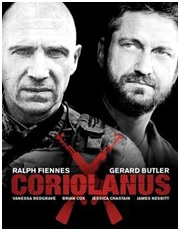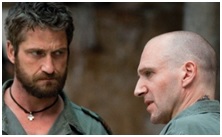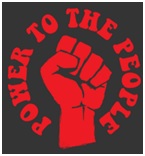|
 |
|
 |
|
|
||
Shakespeare's Corialanus -
Leadership and Ethics
Corialanus
Key characters Corialanus, Roman general and politician, previously known as Caius Martius. Volumnia, his mother. Menenius, politician. Aufidius, Volscian general (from Rome’s neighbouring state, the Volsces). Fun facts
Ian McKellen is pictured right in a 1984 production with Aufidius (Greg Hicks) above him.
The story Rome’s starving people are in revolt and bad guy, Caius Martius, wants the rioting people hanged but is restrained by another top politician, Menenius. Martius is re-named Corialanus after brilliantly helping Cominius defeat the
Volscian army, led by Aufidius, now desperate for revenge. The hero, Corialanus, wants to become consul, Rome’s leader, but this is made impossible by his:
His mother, Volumnia, tells him to be nicer and more tolerant. Furious at being rejected, he joins his old enemy, Aufidius, in an attack on Rome. But Volumnia persuades him to give up his attack on Rome. The Volscians are incensed and kill him. But his death is sadly regretted by Aufidius - despite initially hating each other, they had fallen in love.
Lessons for leadership 1. Change with different circumstances Successful in war was Corialanus’s:
But these characteristics were disastrous in peacetime, showing that a leader must:
As Aufidius says: “Our virtues lie in th’ interpretation of the time”. Aufidius (Gerard Butler), left, is pictured right with Corialanus (Ralph Fiennes) in the 2011 film.
2. Listen and respond to people’s needs Corialanus fails because he:
So Menenius can’t convince the people that the government cares for them. Another politician, Sicinius, observes how dependent leaders are on the people. He asks: “What is the city but the people?” 3. The importance of humility and valour Corialanus shows how arrogant leadership can easily turn into dictatorship. He was a poor peacetime leader, because he didn’t have the humility to put other people’s interests before his own. Cominius believes that valour (physical and moral courage) is vital. “Valour is the chiefest virtue, and most dignifies the haver”, he says 4. Success can easily turn into failure Corialanus rapidly turns from a hero into a villain.
5. Honour and integrity Despite his weaknesses, Corialanus still believes in honour based on principle. Honour and policy, he says, should be like “unsever’d friends”. 6. Unity from a common threat The hungry people soon forget their discontent when faced with the attack of the Volscian army.
7. Evil begets evil The killer Corialanus is murdered by the Volscians.
8. Results come from action “Action is eloquence”, Corialanus says. Tom Hiddleston is pictured right as Corialanus in the 2013/4 National Theatre production.
Key quotes on ethics Valour is the chiefest virtue, and most dignifies the haver, Cominius. Ingratitude is monstrous, Third Citizen.
Key quote on success Action is eloquence, Corialanus.
Key quote on strategy Our virtues lie in th’interpretation of the time,
Aufidius. |
|
|
||
|
|
||
| Copyright © wisdomtowin.com 2025 All Rights Reserved | ||
|












